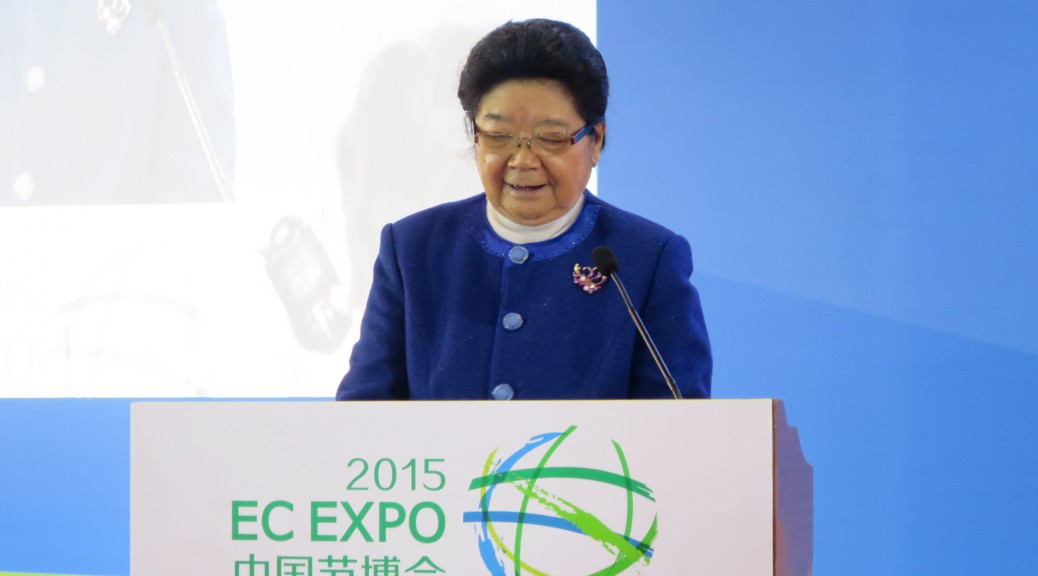BEIJING, Nov. 12 (Greenpost) — Chinese President Xi Jinping’s latest remarks on the stock market have charted a course for future reforms and signaled a bigger role for the market in supporting the economy, analysts said.
During a meeting of top economic officials on Tuesday, Xi urged the development of a stock market with sound financing functions, regulation and investor rights protection.
By giving priority to the financing role of the stock market, the president’s call was a response to some deep-seated problems plaguing the market, such as excessive controls on initial public offerings (IPOs) and rampant insider trading, many economists observed.
“Xi’s remarks set the future direction for stock market development,” said Xu Gao, chief economist of Everbright Securities. “The market has not performed well as a financing vehicle, which should actually be its fundamental role.”
Unlike in more mature economies like the United States, the stock market only contributes a small part to corporate financing in China.
Direct financing, including stocks and bonds, took up less than a fifth of the country’s total social financing, according to official data for the first eight months of 2015.
While the government tries to expand the share of stock financing, the public often sees the market as a tool for money grabbing by listed firms instead of a platform for value investment.
To let the stock market play a better role in financing, the government needs to improve its rules in various ways, including overhauling the current approval system for IPOs and reducing interventions in their pricing, said Li Xunlei, chief economist with Haitong Securities.
Investors should also be allowed to use more effective legal means, such as class action lawsuits, to protect their legitimate interests and increase compensation costs for listed firms who cook the books, according to Lin Caiyi, chief economist of Guotai Junan Securities.
China’s stock market has seen rapid development, but listing and trading is still distorted by administrative forces and imperfect regulation rather than based on corporate performance.
For example, IPOs are limited in number and require authorities’ approval, while the supply of funds is unrestricted as millions of individual investors seek returns that are better than bank interest rates.
As a result, the prices of newly listed shares are usually pushed high, providing hefty profits for original shareholders of the listed companies.
Meanwhile, lack of truthful information disclosure and frequent insider trading often lead to market volatility, causing losses for retail investors.
The problems became more evident during a market rout in summer. Regulators suspended IPOs in July after the main market index plunged 30 percent from its June 12 peak.
Last week, authorities announced a resumption of IPOs and introduced significant changes to IPO procedures, allowing investors to subscribe without paying into escrow accounts in advance, giving more priority to information disclosure instead of pre-IPO approvals, and simplifying procedures for smaller IPOs.
The moves were viewed as preludes to a change of the current approval-based IPO system to a registration-based one, giving a bigger say to the market while improving regulation.
The reforms were in line with Xi’s vision to develop a stock market with “sound financing functions,” which will help reduce the funding costs for Chinese companies and prevent economic risks, Li said.
Chinese firms have seen their debt burden soar since the global financial crisis, as an industrial glut and weak trade hurt their profits and slowed the economy.
The ratio of debt owed by non-financial firms to the country’s GDP reached 317 percent in 2014, compared with 195 percent in 2007.
A healthier stock market will also boost China’s innovation drive, which is at the core of economic upgrades and demands more financing with an appetite for risk, said Lu Qiang, a researcher at Genial Flow Asset Management.
“A lot of innovation-based companies will be formed and then disappear. Their financing cannot rely on banks, which favor big firms with mature operations and steady cash flow,” Lu said.
He expects faster reforms of the stock market, including the introduction of a registration-based IPO system and new boards that cater to the financing needs of tech firms and smaller companies. Enditem
China’s satellite expo opens
BEIJING, Nov. 12 (Xinhua) — A satellite exposition opened on Thursday in Beijing, displaying more than 6,000 new products and academic achievements.
The three-day exposition, Satellite Application China 2015, will attract nearly a hundred specialists, scholars and entrepreneurs from the aerospace and satellite application industry.
Products to be exhibited include a test communication satellite co-designed by private companies and universities, personal outdoor terminals supported by BeiDou navigation and a new domestic-made satellite communication system.
Ran Chengqi, director of the China Satellite Navigation Office, said BeiDou navigation has already been applied in the regional network.
BeiDou services are expected to cover most countries along the Silk Road Economic Belt and the 21st Century Maritime Silk Road by 2018, and offer global coverage by 2020, Ran added.
The exposition is held by the China Users Association for Satellite Communications, Broadcasting and Television and the Electronics and Information Industry Sub-Council of China Council for the Promotion of International Trade. Enditem
 博览会的第一天举行了“节能与生态文明建设高峰论坛”。第十届全国人大常委会副委员长顾秀莲致开幕词。她说,党的十八大将生态文明建设纳入中国特色社会主义事业五位一体总体布局,十八届五中全会将绿色发展作为五大发展理念之一,对生态文明建设做出了一系列重要部署。绿色化是实现生态文明建设的重要标志,也是推进生态文明建设的实践路径,必须大力推进发展方式绿色化、生存空间绿色化、生活方式绿色化、制度体系绿色化、加强国际绿色化合作。大力推进绿色化,节能工作大有可为。举办节博会是推动节能低碳先进技术普及推广、促进节能环保产业发展的重要举措。
博览会的第一天举行了“节能与生态文明建设高峰论坛”。第十届全国人大常委会副委员长顾秀莲致开幕词。她说,党的十八大将生态文明建设纳入中国特色社会主义事业五位一体总体布局,十八届五中全会将绿色发展作为五大发展理念之一,对生态文明建设做出了一系列重要部署。绿色化是实现生态文明建设的重要标志,也是推进生态文明建设的实践路径,必须大力推进发展方式绿色化、生存空间绿色化、生活方式绿色化、制度体系绿色化、加强国际绿色化合作。大力推进绿色化,节能工作大有可为。举办节博会是推动节能低碳先进技术普及推广、促进节能环保产业发展的重要举措。 国家发展和改革委员会副主任张勇说,“十三五”时期必须牢固树立绿色发展理念,遵循保护环境的基本国策,尊重生态发展、生活富裕、生态文明的发展道路,加快建设资源节约型、环境友好型社会。
国家发展和改革委员会副主任张勇说,“十三五”时期必须牢固树立绿色发展理念,遵循保护环境的基本国策,尊重生态发展、生活富裕、生态文明的发展道路,加快建设资源节约型、环境友好型社会。 国家节能中心主任贾复生主持论坛。他说,中国节博会实现国内与国际、审定与推广、实体与虚拟、综合与专业、集中与分散、线上与线下等六个方面的结合,并形成全覆盖、全天候的评审与推广体系,将汇集全球节能技术装备领军企业,激发技术装备提供和应用单位的内生动力,为节能低碳创新技术装备的发展开辟新道路。
国家节能中心主任贾复生主持论坛。他说,中国节博会实现国内与国际、审定与推广、实体与虚拟、综合与专业、集中与分散、线上与线下等六个方面的结合,并形成全覆盖、全天候的评审与推广体系,将汇集全球节能技术装备领军企业,激发技术装备提供和应用单位的内生动力,为节能低碳创新技术装备的发展开辟新道路。 国管局公共机构节能管理司张世良司长介绍了国管局实行节能管理的情况。
国管局公共机构节能管理司张世良司长介绍了国管局实行节能管理的情况。 当天下午,还举办了“‘十三五’生态文明建设与节能减排机制创新论坛”,国家发改委环资司副司长吕文斌解读了生态文明建设相关政策,援引习近平主席的话说,没有绿水青山就不会有金山银山。
当天下午,还举办了“‘十三五’生态文明建设与节能减排机制创新论坛”,国家发改委环资司副司长吕文斌解读了生态文明建设相关政策,援引习近平主席的话说,没有绿水青山就不会有金山银山。 国家发改委能源研究所副所长戴彦德就“十三五”生态文明建设与节能减排的机制创新问题做专题演讲。戴彦德认为,中国在过去10多年来在提高能效方面的成绩是不能抹杀的。中国的节能效率实际上有大幅度提高,否则,中国的雾霾可能要更加提早地到来,也有可能更加严重。他指出,目前,之所以雾霾依然很严重是因为中国的产值依然在继续大幅度增长。
国家发改委能源研究所副所长戴彦德就“十三五”生态文明建设与节能减排的机制创新问题做专题演讲。戴彦德认为,中国在过去10多年来在提高能效方面的成绩是不能抹杀的。中国的节能效率实际上有大幅度提高,否则,中国的雾霾可能要更加提早地到来,也有可能更加严重。他指出,目前,之所以雾霾依然很严重是因为中国的产值依然在继续大幅度增长。 中国标准化研究院资环分院院长林翎介绍了节能减排标准体系及生态文明标准化的建设情况。
中国标准化研究院资环分院院长林翎介绍了节能减排标准体系及生态文明标准化的建设情况。


















